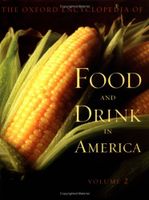Label
All
0
Clear all filters
Prue Leith's latest book is now on ckbk. Get 25% off ckbk Membership
Slang: Drink Slang
Appears in
Published 2004
Leaving the plate and turning to liquid refreshments, the American slang vocabulary of drink is extensive and wide ranging, and demonstrates a clear-cut linguistic creativity. It seems that forms of alcohol and specific drinks (“grape” for wine, “dago red” for cheap red wine, “brewski” for beer, and the all-encompassing “hooch” for alcohol) require slang names. This is also the case with the places where drinking occurs (a “gin mill,” perhaps, or a “beer emporium”), with the men and women who serve the drinks (“beer jerker,” “doctor,” or “mixologist”), and with the actual act of drinking, from “name your poison” for the “antifogmatic,” “booster,” or “eye-opener” (all describing the first drink of the day) to the “sundowner” or “settler” (the last drink of the night). The slang is, for the most part, jocular and lighthearted, carefully skirting the difficult social issues associated with alcohol. Even the wages of alcoholic sinning—vomiting, hangover, and delirium tremens—are fair game for slang. Rapid-change ephemerality is characteristic of most slang, and the slang of alcohol is no exception to this rule; new terms replace old terms with regularity, and only the catchiest of words survive—”heebie-jeebies” for delirium tremens is an example.
Become a Premium Member to access this page
Unlimited, ad-free access to hundreds of the world’s best cookbooks
Over 150,000 recipes with thousands more added every month
Recommended by leading chefs and food writers
Powerful search filters to match your tastes
Create collections and add reviews or private notes to any recipe
Swipe to browse each cookbook from cover-to-cover
Manage your subscription via the My Membership page
Best value
Part of
Advertisement
Related Recipes
-
-
-
-
Related Reference
-
-
-
-
Advertisement
The licensor does not allow printing of this title



